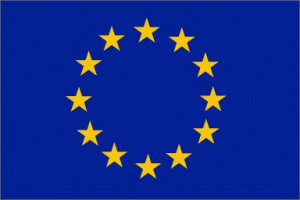 Today the EP Committee on International Trade (INTA) voted to 19-12 to recommend that the full Parliament reject ACTA. It formally adopted David Martin’s draft report on the agreement, which formally advises the Parliament to decline to give its consent to ACTA, noting that “intended benefits of this international agreement are far outweighed by the potential threats to civil liberties. Given the vagueness of certain aspects of the text and the uncertainty intended benefits of this international agreement are far outweighed by the potential threats to civil liberties.”
Today the EP Committee on International Trade (INTA) voted to 19-12 to recommend that the full Parliament reject ACTA. It formally adopted David Martin’s draft report on the agreement, which formally advises the Parliament to decline to give its consent to ACTA, noting that “intended benefits of this international agreement are far outweighed by the potential threats to civil liberties. Given the vagueness of certain aspects of the text and the uncertainty intended benefits of this international agreement are far outweighed by the potential threats to civil liberties.”
Four other committees of the European Parliament have rejected ACTA in recent weeks – the Committees on International Development (19-1, 3 abstensions); Committee on Civil Liberties (30-1, 21 abstentions); Committee on Legal Affairs (12-1, 2 abstentions); and the Committee on Industry, Research and Energy (31- 25 against, 1 abstention). On July 4, the full Parliament will vote on whether or not to approve the agreement.
Statements on the INTA vote follow
Sean Flynn, American University
The end of ACTA may also spell the end for the U.S.’s more aggressive demands for intellectual property in the Trans Pacific Partnership (TPP) agreement. The U.S. demands in the TPP go far beyond ACTA on the most controversial subjects, including the evergreening of patents on medicines and regulation of the internet. As ACTA falls, it becomes increasingly unlikely that the TPP members, a majority of which are developing countries, would sign on to the same or higher restrictions on their domestic rule making that ACTA attempted.
MEP Marietje Schaake, INTA committee:
“With this vote my committee has given an important advice to the plenary vote in two weeks. The EU should reject ACTA. ACTA contains some troublesome provisions for policy areas such as internet freedom and access to medicines. By regulating several policy areas in one document, ACTA enforces laws in an undesirable and dangerous way.”
Jeremie Zimmermann, La Quadrature du Net:
The way is now paved for a quick and total rejection of ACTA by the European Parliament! With a political symbol of such a global scale, the way will be open for copyright to be reformed in a positive way, in order to encourage our cultural practices instead of blindly repressing them. Destroying ACTA would give us some breathing space by creating a political symbol of global importance: the Internet, in all its diversity, winning a global political battle against some of the most powerful industries and governments.
Peter Maybarduk, Public Citizen Global Access to Medicines Project
The politics of the global knowledge economy are shifting: from mercantilism to cooperation, from closed to open. The INTA vote shows that European politicians increasingly understand we cannot let healthcare and internet policy be dictated by a very few outdated corporate interests. Rather, we need forward-looking policies for technology and creative works that unleash our human genius. ACTA is a retrograde policing approach to the knowledge economy: it treats competition like criminality and the internet as a threat. The European Parliament must vote ACTA down.”
Ante Wessels, Foundation for a Free Information Infrastructure
A huge victory for civil society, Internet freedom, access to medicine and knowledge, and innovative companies. But we are not there yet. There will be a plenary vote the first week of July.
Margot Kaminski, Information Society Project at Yale Law School
ACTA is the result of a broader US trade agenda that does not comport with European or international understandings of privacy, free expression, rights to health, or due process. The INTA vote is a laudable step on the way to European rejection of that agenda. INTA should be applauded for recognizing that the trade interests of a few US corporations are not the interests of Europe’s citizens.




